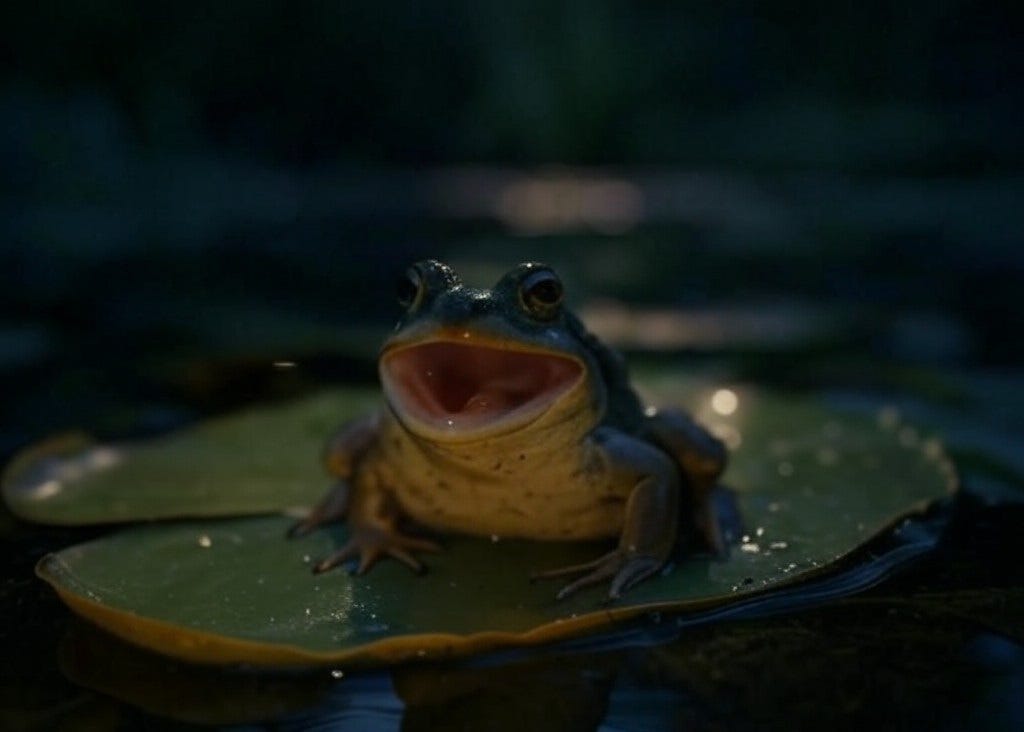Laughing Frogs
AI fascinates me because, when people are lonely, they seek company - and now, we have these confidants in the cloud with us. Over time, AI will adjust itself based on accumulated prompts, generating responses it deems most fitting.
For some, it may enable a deeper descent into delusion, offering precisely the words they wish to hear, conveyed in just the right tone - mistaken, continuously, for truth. For others, it may be unrelentingly direct, pressing bleakness upon the mind like an unwanted weight. Many will, perhaps unwittingly, surrender the human journey of adventure and discovery to an external authority they do not fully comprehend. At that point, some may struggle to discern who truly authored their lives - to exist without ever becoming fully awake, having never truly journeyed within alone - a thought that will unsettle some by the loss of agency yet bring relief to others in the surrender of responsibility. The balance will be a delicate one to strike. Purists and heretics will emerge, as they have in every turning of time.
We joked about Covid-19 being an intelligence test, yet the next has already arrived. Now, we laugh about frogs, even as we ourselves are being boiled.
What is perhaps most elegantly haunting is the sight of others submerging themselves - without question, without resistance - just as they have in times before.


Great post. This raises the question: will AI elevate human potential or quietly erode it?